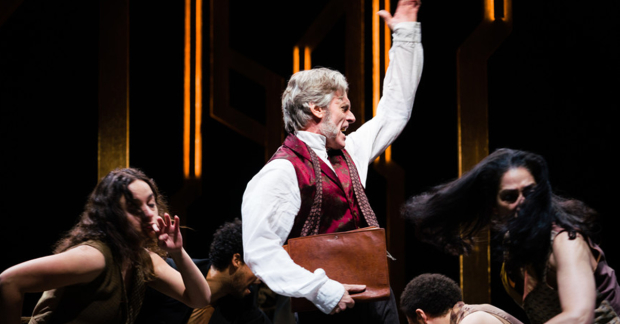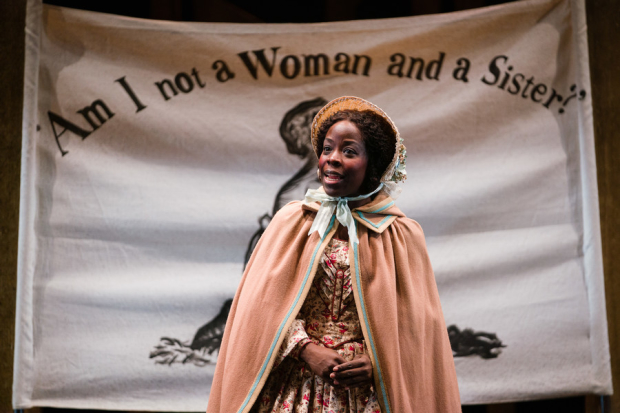Review: The Whip (Swan Theatre, Stratford-upon-Avon)
The RSC stages the world premiere of Juliet Gilkes Romero’s play

© RSC, photo by Steve Tanner
One of the smarter things about Juliet Gilkes Romero's new play for the RSC is how it embraces the double meaning of its title: not only is it ostensibly about the government chief whip's steerage of the 1833 slavery abolition bill through parliament, it's also a direct reference to the frequent and violent floggings endured by the victims of the slave trade.
Alexander, Lord Boyd, is the aforementioned whip with the unenviable task of cajoling, persuading or simply blackmailing the various vested interests to see the bill onto the statute books. In Romero's incarnation, he is wonderfully conflicted, his personal morality thrust uncomfortably up against pragmatic imperatives and the greater prize of abolition.
Richard Clothier finds three full dimensions in the character, one moment compassionately empathic with the disenfranchised, the next selling out those nearest to him in order to score a political advantage. Clothier is charismatic and constantly interesting to watch, and the compromises he is forced to make feel real and properly awkward: history may, as one character claims, praise the reformers, but at what cost?
Boyd is far from the only intriguing presence on stage, though. Romero cleverly makes her play about more than one emancipation. She points, more or less overtly, at the inequality of the genders, the subjugation of the working class, the racial segregation of non-white populations, the entitlement of the "moneyed elite" – almost too many iniquities to deal with in one sitting.

© RSC, photo by Steve Tanner
Katherine Pearce, for instance, plays former cotton mill worker Horatia Poskett, here representing both the poor and the downtrodden woman. Horatia is perhaps a little stereotypical in her northernness but Pearce delivers the role forcefully and with genuine conviction. Similarly, Corey Montague-Sholay's Edmund, a freed slave who learns to resent his master's casual presumptions, is more than a metaphor for his plight: he's complex and contradictory and human.
There's much atmosphere derived from Akintayo Akinbode's intelligent score and Ciaran Bagnall's supportive lighting and design, while the production values are never less than top-notch.
Directed by Kimberley Sykes, the play is far from perfect. It is too long, the dialogue strays into cliché and the interwoven narratives are occasionally so dense that they obscure the potent underlying messages. More uneasily, its attempts to strike resonances with modern Britain and the corruption at the heart of political life in our post-Brexit world are heavy-handed and frequently feel forced.
On the other hand, as a window into a difficult, dirty moment in British history, with all the murkiness that compromise demands and never shirking from the price that has to be paid, it is a powerful commentary on how we are governed… and have been for centuries. As the poet Steve Turner once wrote: History repeats itself. Has to. No one listens.


















